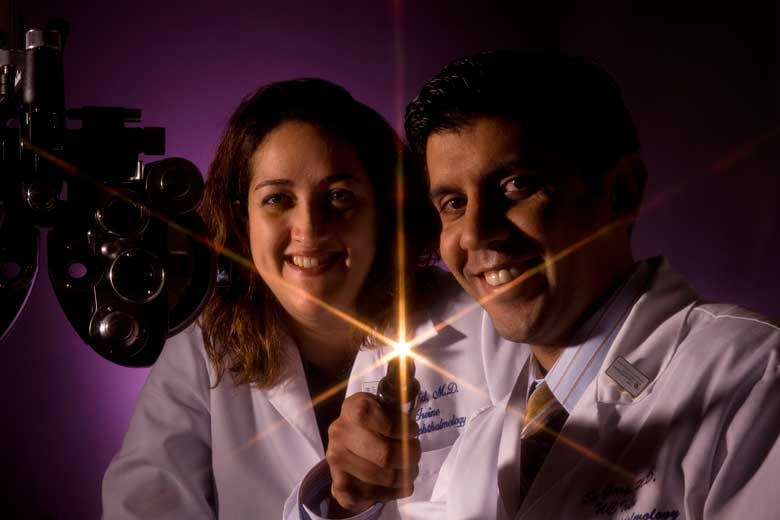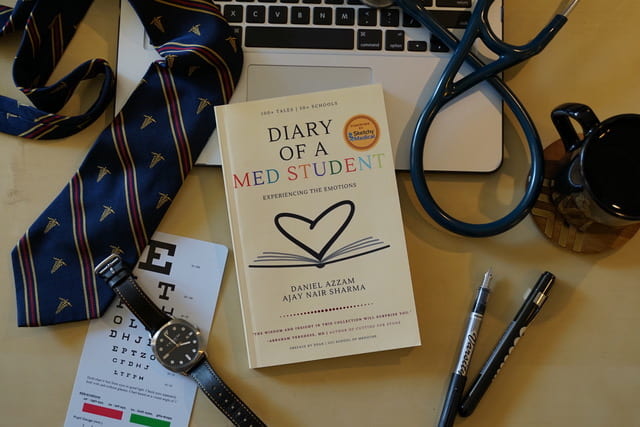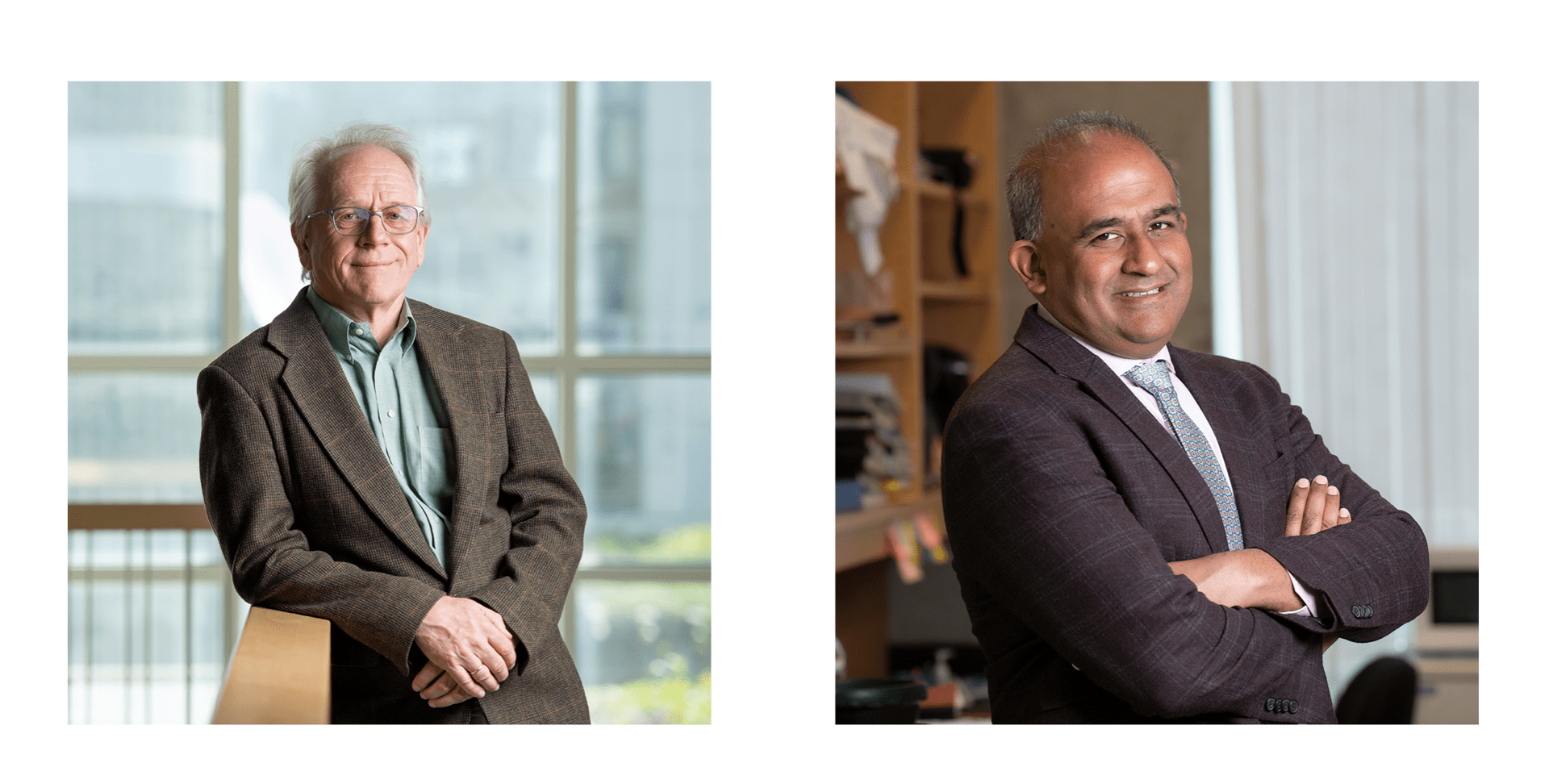Getting you back in focus
Gavin Herbert Eye Institute refractive surgeons use cutting-edge lasers and world-class skill to restore good sight.

As with the rest of the human body, our eyes are not immune to the effects of aging. As many of us reach middle age, once-sharp distance vision begins to blur, reading becomes more difficult, and halos seem to surround outdoor lights at night. In addition, emerging cataracts can cloud the lenses, slowly sapping sight. Fortunately, we don’t have to put up with this.
UC Irvine ophthalmologists at the Gavin Herbert Eye Institute’s Refractive Surgery LASIK Center use state-of-the-art laser technology to treat age-related conditions as well as problems like nearsightedness and astigmatism. They also invented and advanced a laser-assisted corneal transplant technique.
Founded by world-renowned refractive surgeon Dr. Roger Steinert, ophthalmology chair and institute director, the center is the only one in Orange County dedicated to laser refractive surgery training, research and care.
“All our refractive surgeons are fellowship-trained corneal specialists,” says Dr. Marjan Farid, assistant professor of ophthalmology and the center’s director of cornea, cataract and refractive surgery. “And – unique in this area – they perform all preoperative evaluations and postoperative visits.”
To schedule a consultation with a UCI refractive surgeon, call 949-824-9970. UCI employees and dependents are eligible for special rates.
Here, center surgeons Farid and Dr. Sumit (Sam) Garg, assistant professor of ophthalmology, discuss vision issues caused by aging and how to address them:
Q: What happens to our vision as we get older?
Garg: Most patients begin to experience presbyopia, an age-related difficulty with near vision, in their 40s. This occurs as the eye lens hardens naturally and loses the flexibility to focus on close-up objects. The small muscles in the eye are not able to bend the less pliant lens, compromising near vision.
Farid: Common reading glasses help with this condition, but there are a number of laser vision correction options. One is refractive lens exchange, a procedure identical to cataract surgery in which an artificial lens is implanted.
Q: What can we do to preserve our good vision longer?
Farid: Regular visits to an ophthalmologist are the most important way to avoid vision loss with age. Most blinding diseases in the elderly are preventable if detected and treated early.
Garg: Unlike optometrists, who focus on prescribing and fitting contact lenses and glasses, ophthalmologists are physicians who treat medical and surgical eye conditions. Many of our services are covered by medical insurance, rather than a separate vision plan.
Q: Are you seeing an increase in any particular type of eye disorder?
Garg: As life expectancy rises, we are getting more and more patients with cataracts, glaucoma and macular degeneration. Also, as the ranks of diabetics grow, we see many more young people with related vision issues.
Farid: Diabetes can damage the eyes and elevate the risk of earlier cataract development. It’s important that diabetics have frequent eye exams to diagnose and treat problems.
Q: What concerns do people often have about LASIK-type vision correction procedures?
Garg: Dry eye can sometimes be aggravated by LASIK. We are very aggressive in our pre- and postoperative treatment to prevent this.
Farid: The newest generation of lasers has practically eliminated most of the risks previously associated with LASIK. CustomVue Wavefront excimer lasers have done away with the halo and glare side effects common with older, conventional lasers. At UCI, we only offer the latest laser technology.
Q: What should consumers wanting LASIK-type procedures look for?
Garg: You want a refractive center to have fellowship-trained surgeons. Additionally, the equipment used is extremely important. There have been numerous enhancements in refractive surgery since its inception. The most recent technology improves outcomes, and excellent outcomes are our goal.
Farid: We’re a university institute with faculty physicians who have dedicated their lives and careers to the care of patients. This may mean turning away people who aren’t good candidates for LASIK. Financial gain is not our motivation.



